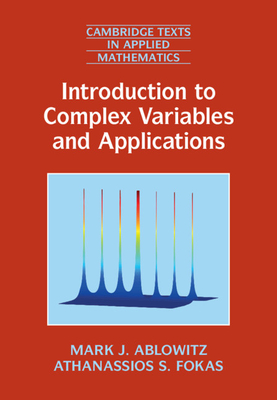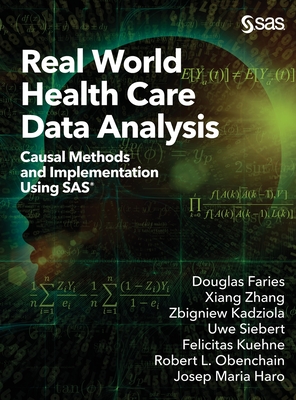Causal Inference for Statistics, Social, and Biomedical Sciences: An Introduction (Hardcover)
暫譯: 統計學、社會科學與生物醫學科學的因果推斷:入門指南(精裝版)
Guido W. Imbens, Donald B. Rubin
- 出版商: Cambridge
- 出版日期: 2015-04-06
- 售價: $2,690
- 貴賓價: 9.5 折 $2,556
- 語言: 英文
- 頁數: 644
- 裝訂: Hardcover
- ISBN: 0521885884
- ISBN-13: 9780521885881
-
相關分類:
機率統計學 Probability-and-statistics
海外代購書籍(需單獨結帳)
買這商品的人也買了...
-
 Beautiful Data: The Stories Behind Elegant Data Solutions (Paperback)
Beautiful Data: The Stories Behind Elegant Data Solutions (Paperback)$1,650$1,568 -
 Lectures on Quantum Mechanics, 2/e (Hardcover)
Lectures on Quantum Mechanics, 2/e (Hardcover)$1,260$1,235 -
 Computer Age Statistical Inference : Algorithms, Evidence, and Data Science (Hardocver)
Computer Age Statistical Inference : Algorithms, Evidence, and Data Science (Hardocver)$2,980$2,831 -
 Elements of Causal Inference: Foundations and Learning Algorithms (Hardcover)
Elements of Causal Inference: Foundations and Learning Algorithms (Hardcover)$1,950$1,853 -
 Counterfactuals and Causal Inference: Methods and Principles for Social Research (Paperback)
Counterfactuals and Causal Inference: Methods and Principles for Social Research (Paperback)$1,940$1,843 -
 $1,460Introduction to the Theory of Computation, 3/e (Hardcover)
$1,460Introduction to the Theory of Computation, 3/e (Hardcover) -
 $2,340Causality: Models, Reasoning and Inference (Hardcover)
$2,340Causality: Models, Reasoning and Inference (Hardcover) -
 Reinforcement Learning: An Introduction, 2/e (Hardcover)
Reinforcement Learning: An Introduction, 2/e (Hardcover)$1,750$1,715 -
 Discrete Mathematics and Its Applications, 8/e (Paperback)
Discrete Mathematics and Its Applications, 8/e (Paperback)$1,350$1,283 -
 Random Measures, Theory and Applications
Random Measures, Theory and Applications$7,190$6,831 -
 Advanced Engineering Mathematics, 10/e (Update) (Taiwan Custom Version)(Paperbck)
Advanced Engineering Mathematics, 10/e (Update) (Taiwan Custom Version)(Paperbck)$1,560$1,529 -
 Mathematics and Computation: A Theory Revolutionizing Technology and Science (Hardcover)
Mathematics and Computation: A Theory Revolutionizing Technology and Science (Hardcover)$1,680$1,646 -
 Foundations of Modern Probability, 3/e (Hardcover)
Foundations of Modern Probability, 3/e (Hardcover)$3,850$3,773 -
 $1,450Introduction to Complex Variables and Applications (Paperback)
$1,450Introduction to Complex Variables and Applications (Paperback) -
 $551阿裡雲天池大賽賽題解析 — 深度學習篇
$551阿裡雲天池大賽賽題解析 — 深度學習篇 -
 $509機器學習算法競賽實戰
$509機器學習算法競賽實戰 -
 The Algorithm Design Manual, 3/e (德國原版)
The Algorithm Design Manual, 3/e (德國原版)$2,850$2,793 -
 $708隱私計算
$708隱私計算 -
 $2,146Introduction to Algorithms, 4/e (Hardcover)
$2,146Introduction to Algorithms, 4/e (Hardcover) -
 $2,520Hands-On Machine Learning with Scikit-Learn, Keras, and Tensorflow: Concepts, Tools, and Techniques to Build Intelligent Systems, 3/e (Paperback)
$2,520Hands-On Machine Learning with Scikit-Learn, Keras, and Tensorflow: Concepts, Tools, and Techniques to Build Intelligent Systems, 3/e (Paperback) -
 A Compact Course on Linear Pdes
A Compact Course on Linear Pdes$2,620$2,489 -
 An Introduction to Kolmogorov Complexity and Its Applications (Hardcover)
An Introduction to Kolmogorov Complexity and Its Applications (Hardcover)$3,920$3,724 -
 $708強化學習的數學原理 (英文版)
$708強化學習的數學原理 (英文版) -
 機器學習習題參考
機器學習習題參考$594$564 -
 Lectures on Optimal Transport
Lectures on Optimal Transport$2,280$2,166
商品描述
Most questions in social and biomedical sciences are causal in nature: what would happen to individuals, or to groups, if part of their environment were changed? In this groundbreaking text, two world-renowned experts present statistical methods for studying such questions. This book starts with the notion of potential outcomes, each corresponding to the outcome that would be realized if a subject were exposed to a particular treatment or regime. In this approach, causal effects are comparisons of such potential outcomes. The fundamental problem of causal inference is that we can only observe one of the potential outcomes for a particular subject. The authors discuss how randomized experiments allow us to assess causal effects and then turn to observational studies. They lay out the assumptions needed for causal inference and describe the leading analysis methods, including, matching, propensity-score methods, and instrumental variables. Many detailed applications are included, with special focus on practical aspects for the empirical researcher.
商品描述(中文翻譯)
大多數社會科學和生物醫學科學中的問題本質上是因果性的:如果改變個體或群體的某部分環境,會發生什麼?在這本開創性的著作中,兩位世界知名的專家提出了研究這類問題的統計方法。本書以潛在結果的概念開始,每個潛在結果對應於如果一個主體接受特定處理或方案時所實現的結果。在這種方法中,因果效應是這些潛在結果的比較。因果推斷的基本問題在於,我們只能觀察到特定主體的一個潛在結果。作者討論了隨機實驗如何使我們能夠評估因果效應,然後轉向觀察性研究。他們列出了因果推斷所需的假設,並描述了主要的分析方法,包括配對、傾向分數方法和工具變數。書中包含了許多詳細的應用,特別關注實證研究者的實務面向。
















